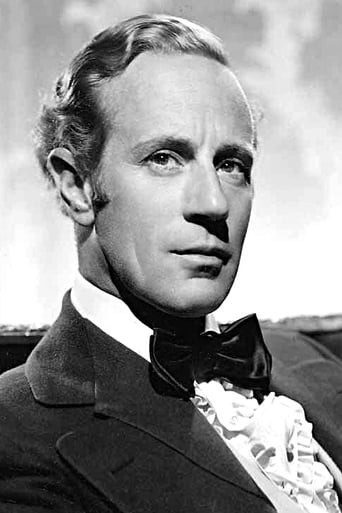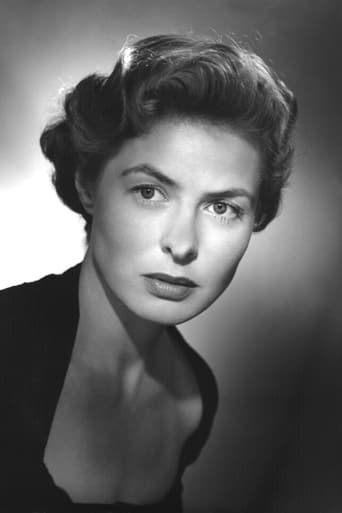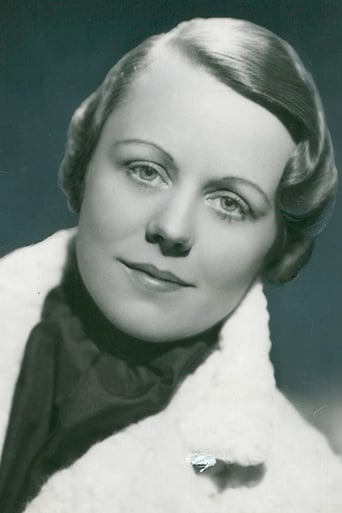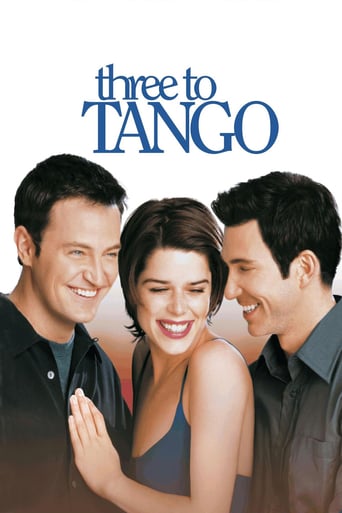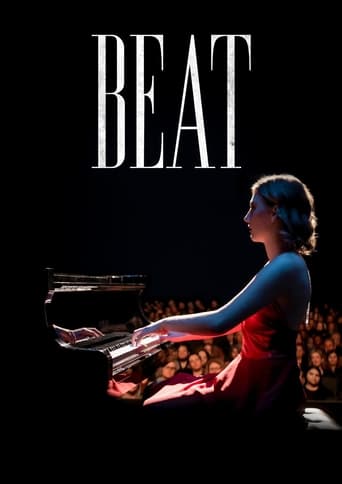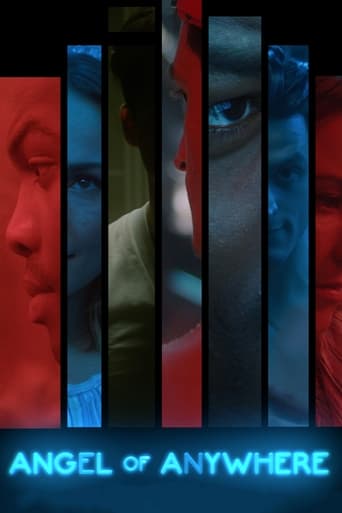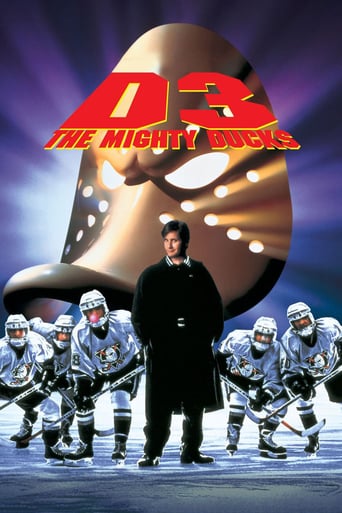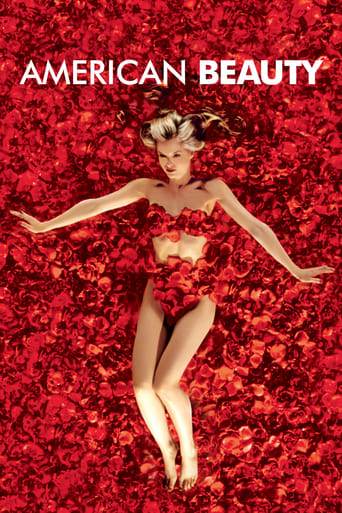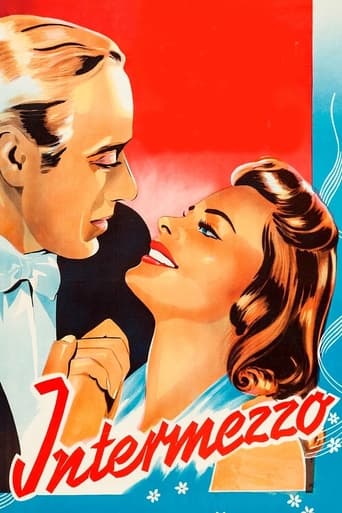

Intermezzo: A Love Story (1939)
A concert violinist becomes charmed with his daughter's talented piano teacher. When he invites her to go on tour with him, they make beautiful music away from the concert hall as well. He soon leaves his wife so the two can go off together.
Watch Trailer
Cast


Similar titles
Reviews
the audience applauded
The performances transcend the film's tropes, grounding it in characters that feel more complete than this subgenre often produces.
In truth, there is barely enough story here to make a film.
It's a good bad... and worth a popcorn matinée. While it's easy to lament what could have been...
At only 70 minutes "Intermezzo" is short even by the standards of the thirties. The story is simple and its moral equally so. Holger Brandt is a famous Classical violinist who falls in love with Anita Hoffman, his daughter's attractive young piano teacher. Holger leaves his wife and family for Anita, and they tour Europe together, with her acting as his accompanist. Anita, however, has a guilty conscience about having been responsible for splitting up Holger's marriage. She leaves him so that he can return to his family, who forgive him. The message is that individual happiness cannot be based upon the unhappiness of others.One contributor on this board states that he would not normally approve of a film about adultery, in which case his choice of viewing matter must be rather limited. His choice of reading matter must be even more limited, as adultery has always been one of the great themes of literature. The great literary chroniclers of adultery, however- Flaubert, Tolstoy, Fontane, Hardy, Balzac, Alas, Lawrence- treated the subject with much greater frankness, and with much greater depth, than do the makers of this film. (Perhaps because those writers had no Production Code to worry about). "Intermezzo" presents us with a rather sanitised version of adultery, in which at the end of the day no-one gets hurt and there is a happy ending for everyone- even for Anita, whose renunciation of the man she loves is presented as a noble gesture which will enable her to live in future with a clear conscience. The film has been described as a "weepie" or a "tear-jerker", but it seemed to me that there was precious little in it to shed tears over.Most literary treatments of adultery (Anna and Karenin, Emma and Charles, Sir Clifford and Lady Chatterley) paint a portrait of a deeply dysfunctional marriage; this film, however, paints a highly idealised one. The opening scenes of Brandt, his adoring wife Margit and their two children could be taken straight from an advert depicting the ideal family. There is no attempt to suggest any marital discord which might have contributed to Brandt's infidelity; adultery is simply presented as "one of those things that happen", like an accident.This is not Ingrid Bergman's greatest film, but her vibrant, lively personality shines through and she does enough to show why she was to go on to become a major Hollywood star. (Ironically, her career was to be damaged ten years later when she herself became involved in an affair with a married man, Roberto Rossellini). Leslie Howard, however, seems too much the perfect gentleman with no suggestion of a passionate nature below the surface. One cannot really imagine him as the sort of man who would jeopardise a seemingly idyllic marriage for a guilty fling.This film is a remake of a Swedish film of the same name, made three years earlier in 1936. The main purpose of the remake was to allow David O. Selznick to introduce to the American public his big new star, Ingrid Bergman, who had also starred in the Swedish version. Tom Cruise did something similar recently when, wanting to introduce to the American public a big new star, Penelope Cruz (who also happened to be his girlfriend), he produced, under the title "Vanilla Sky", an English-language remake of her previous Spanish hit "Abre los Ojos". There is, however, a difference. Cruise's film transferred the action from Spain to America and included several well-known Hollywood stars, including himself. The American version of "Intermezzo" by contrast, kept the Swedish setting of the original film. Moreover, none of the leading actors were American. Apart from Bergman, the two leading roles are played by British actors, Leslie Howard and Edna Best. Clearly, in 1939 there was no automatic assumption on the part of Hollywood filmmakers, as there is today, that American audiences took no interest in countries other than their own.It might, in fact, have been easier if the action had been transferred to America, as it would have spared the filmmakers the dilemma of how to refer to the European political situation. The film was made at a time when Europe was threatened by war, and actually opened a few days after war was actually declared. The view of Europe in 1939, however, is as sanitised as that of the Brandts' marriage. We see a continent at peace, with no reference to Nazism or the approaching conflict, beyond one brief allusion to "the time when Vienna was a happy city". This has been taken as a reference to the Anschluss in the previous year, although Vienna was probably not a particularly happy place under the authoritarian pre-1938 Dollfuss/Schuschnigg regime.In style the film is a romantic melodrama, complete with lush Classical music playing in the background. It is reasonably well made, but I was rather unhappy with its treatment of its subject-matter. In one of a number of musical metaphors, Anita says that she was just an intermezzo in Brandt's life. Most extra-marital affairs in real life are rather more than that. If only the damage done by infidelity could be repaired as easily as it is in this film. 6/10
The familiar David O. Selznick gloss is all over this minor 1939 soap opera, most noteworthy as the American film debut of 24-year old Ingrid Bergman. She was brought over from Sweden by Selznick for this melodramatic remake of the 1936 film which brought her great acclaim in her homeland. Her fresh-faced beauty and natural manner are intoxicating as she plays Anita Hoffman, first a piano teacher to the young daughter of renowned violinist Holger Brandt and then his accompanist on a world tour. It's a brief movie, only seventy minutes long, directed by Gregory Ratoff (more famous as the ulcer-ridden producer Max in "All About Eve") focusing on the illicit affair that develops between Anita and Holger.Much of the story has to do with the guilt they both experience in terms of the familial repercussions, and the ending reflects as much. A role away from his Ashley Wilkes in "Gone With the Wind", obviously the more important Selznick movie in production a the time, Leslie Howard plays Holger in his familiar erudite manner. Veteran character actor Cecil Kellaway (later the monsignor in "Guess Who's Coming to Dinner") plays the sage maestro who acts as the film's conscience. Scenes often seem strangely truncated to move the story briskly along. Beyond Bergman, the most accomplished aspects of the film are Gregg Toland's lush cinematography, Lyle Wheeler's art direction (making Monterey, California look very much like the Italian Riviera) and Max Steiner's romantic music (oddly uncredited). But the impossibly striking Bergman is the primary reason to see this predictably developed film. The 2004 DVD offers no extras.
In 1939 Leslie Howard made a meal out of noble suffering and he did it equally well when the budget was a stick of gum as here or when it ran into the young millions as in Gone With The Wind. This is a movie you Want to like not least because it marked the English-speaking debut of Ingrid Bergman who was just as gorgeous at 24 as she remained until her death - trivia buffs may like to know that she played a classical pianist both in this, her first English-speaking film and Autumn Sonata her last film on the big screen which was, of course, shot in Swedish, her native language. With only seventy minutes to play with Gregory Ratoff is prodigal with time; the film opens with violin maestro Howard playing a farewell gig at Carnegie Hall; he then TELLS his audience that he is returning home to Sweden; he is then SHOWN on board ship to Sweden in a scene that adds little to the story and then he Arrives in Sweden. Today, in fact for the last forty years or so, a director would cut from Carnegie Hall directly to Howard at home in Sweden but that's really a minor beef. What we have here is our old friend the 'woman's picture' or 'weepie' and it's strangely disjointed; Ratoff at times seems to be anticipating the New Wave in his abrupt cuts. It's ironic that Bergman made her to all intents and purposes film debut as an adulteress who would play the part for real a decade later when she co-starred with Roberto Rossellini in Life Imitating Art. Perhaps in an effort to sugar the pill the adulterers are depicted as cultured, cultivated people, classical musicians in fact as if that somehow lessens the pain of those left behind and almost adding insult to injury they throw in a scene where Howard's young daughter (Ann E Todd) is so happy to see him when he makes a fleeting visit home that she dashes in front of a car and is badly injured. But relax, folks, this is 1939; we don't do infant mortality and lo and behold if in the final scene long-suffering and saintly wife Edna Best takes him back into the fold no questions asked. A few years ago 20th Century Fox reissued some of their classic films (Laura comes to mind) in truncated versions, a gimmick that failed to catch on and Intermezzo is reminiscent of one of these, its actual seventy minutes feeling more like forty and investing it with an air of Adultery-lite.
This movie about the world renowned violinist and his daughters piano teacher is beautiful. Leslie Howard did an amazing job and Ingrid Bergman looked lovely. Although their acting showed no real chemistry between the two... it went along with the story of how she was only an "intermezzo" in his life. I have never seen such a beautiful film about love, affairs, and pain brought to all those involved. It was moving and every bit theatrical as the title presumes. Besides Gone With The Wind it is Howards most lovely film and I suggest to all they see it. Intermezzo was simply... dazzling with its theme and truths. It showed real life in a way that most films of the day were afraid to.


